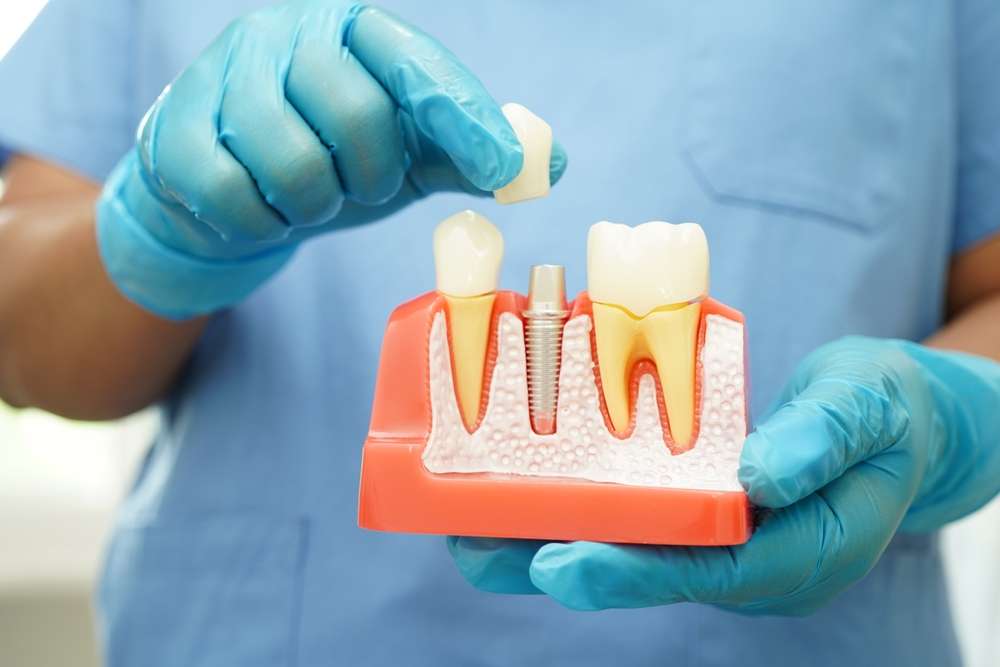Dental Implant Costs in the UK for 2025: What to Expect
Dental implants are becoming the top choice for replacing missing teeth in the UK, offering a durable, natural-looking alternative to dentures or bridges. As 2025 approaches, many are curious about expected costs and the key factors influencing implant pricing.

What Are Dental Implants and Why Are They Growing in Popularity?
Dental implants are artificial tooth roots, typically made from titanium, that are surgically placed into the jawbone to support replacement teeth or bridges. Unlike dentures or bridges that rest on the gum line, implants integrate with the bone, providing a stable and long-lasting solution for missing teeth. Their popularity has surged in recent years due to advancements in dental technology, improved success rates, and growing awareness of their benefits. Patients appreciate that implants look, feel, and function like natural teeth, offering improved comfort and confidence compared to traditional alternatives. Additionally, implants help preserve jawbone structure, preventing the bone loss that often occurs after tooth loss.
Understanding Current Dental Implant Costs in the UK
As of 2024, dental implant costs in the UK vary considerably depending on location, clinic reputation, and the complexity of the procedure. On average, a single dental implant can range from £1,500 to £3,000, though prices in London and other major cities tend to be higher. This cost typically includes the implant post, abutment, and crown, but additional procedures such as bone grafting or sinus lifts can increase the overall expense. Private dental practices dominate the implant market, as NHS coverage for dental implants is limited to specific medical circumstances. Patients should be aware that initial consultations, diagnostic imaging, and follow-up appointments may incur separate charges, contributing to the total investment required.
Key Factors Affecting Dental Implant Prices in 2025
Several factors influence the cost of dental implants, and understanding these can help patients make informed decisions. The experience and expertise of the dental surgeon play a significant role, with highly qualified specialists often charging premium rates. Geographic location matters considerably, as practices in urban centres typically have higher overheads than those in rural areas. The type and quality of materials used, particularly the implant brand and crown composition, also affect pricing. Complex cases requiring preparatory work such as bone grafting, tooth extractions, or treatment for gum disease will naturally increase costs. Additionally, the number of implants needed and whether full-arch restorations are required can substantially impact the final bill. Technology and equipment used during the procedure, including digital imaging and computer-guided surgery, may also be reflected in pricing.
Projected Dental Implant Costs for 2025
Looking ahead to 2025, dental implant costs in the UK are expected to remain relatively stable, with modest increases reflecting general inflation and rising operational costs for dental practices. Industry experts suggest that single implant procedures may range from £1,600 to £3,200, depending on the factors mentioned earlier. Full-mouth restorations, which can involve multiple implants supporting fixed bridges or dentures, may cost between £15,000 and £30,000 or more. Some clinics are beginning to offer package deals that bundle consultations, surgery, and follow-up care, potentially providing better value for patients. It is important to note that these are estimates, and actual costs will vary based on individual circumstances and treatment plans.
| Provider Type | Service Offered | Estimated Cost Range |
|---|---|---|
| Private Dental Clinics (Urban) | Single Dental Implant | £2,000 - £3,200 |
| Private Dental Clinics (Rural) | Single Dental Implant | £1,600 - £2,500 |
| Specialist Implant Centres | Single Dental Implant with Advanced Technology | £2,500 - £3,500 |
| Private Practices | Full-Mouth Restoration (All-on-4) | £15,000 - £25,000 |
| Dental Tourism Providers (UK-based coordination) | Single Dental Implant (abroad) | £800 - £1,500 |
Prices, rates, or cost estimates mentioned in this article are based on the latest available information but may change over time. Independent research is advised before making financial decisions.
More Affordable Alternatives to Dental Implants in the UK
For patients concerned about the cost of dental implants, several alternatives exist that may better suit their budget. Traditional dentures remain a popular choice, with partial dentures costing between £400 and £1,000, and full dentures ranging from £800 to £2,500. Dental bridges, which use adjacent teeth as anchors, typically cost between £800 and £2,500 per bridge and can effectively replace one or more missing teeth. Some patients explore dental tourism, travelling to countries where implant procedures are significantly cheaper, though this approach carries considerations regarding follow-up care and quality assurance. Payment plans and dental finance options are increasingly available at UK practices, allowing patients to spread the cost of implants over manageable monthly instalments. Additionally, dental schools sometimes offer reduced-cost treatments performed by supervised students, providing another avenue for cost-conscious patients.
Preparing for Your Dental Implant Investment
Given the significant financial commitment involved, thorough preparation is essential before proceeding with dental implant treatment. Start by obtaining detailed written quotes from multiple dental practices, ensuring all potential costs are itemized and explained. Verify the qualifications and experience of the treating dentist, and ask to see before-and-after photos of previous cases. Inquire about the specific implant brands and materials being used, as quality can vary. Check whether the quoted price includes all necessary components, follow-up appointments, and any warranty or guarantee on the work. Consider whether dental insurance or health plans might contribute toward the cost, though coverage for implants is often limited. Finally, discuss payment options and financing arrangements to ensure the treatment fits within your financial circumstances. Making an informed decision will help ensure a successful outcome and long-term satisfaction with your dental implants.
This article is for informational purposes only and should not be considered medical advice. Please consult a qualified healthcare professional for personalized guidance and treatment.




